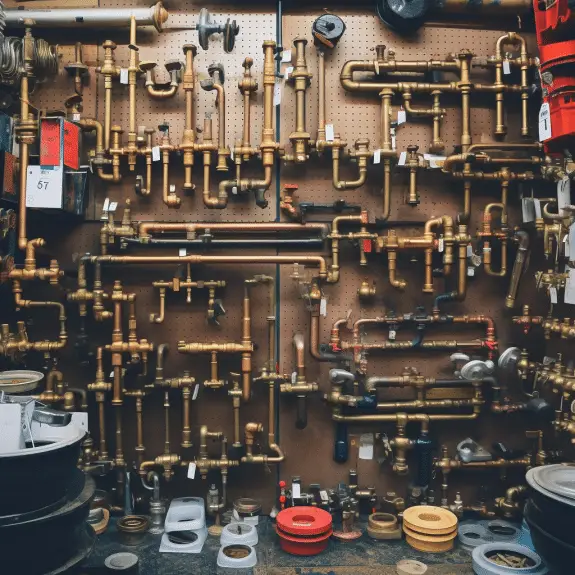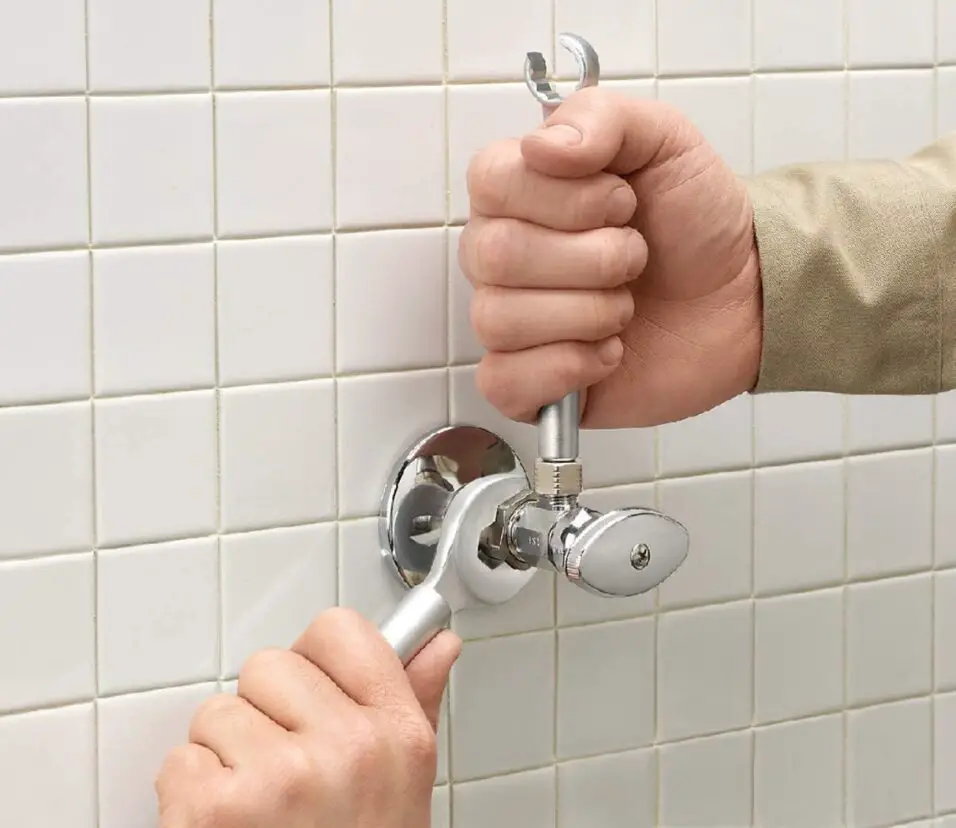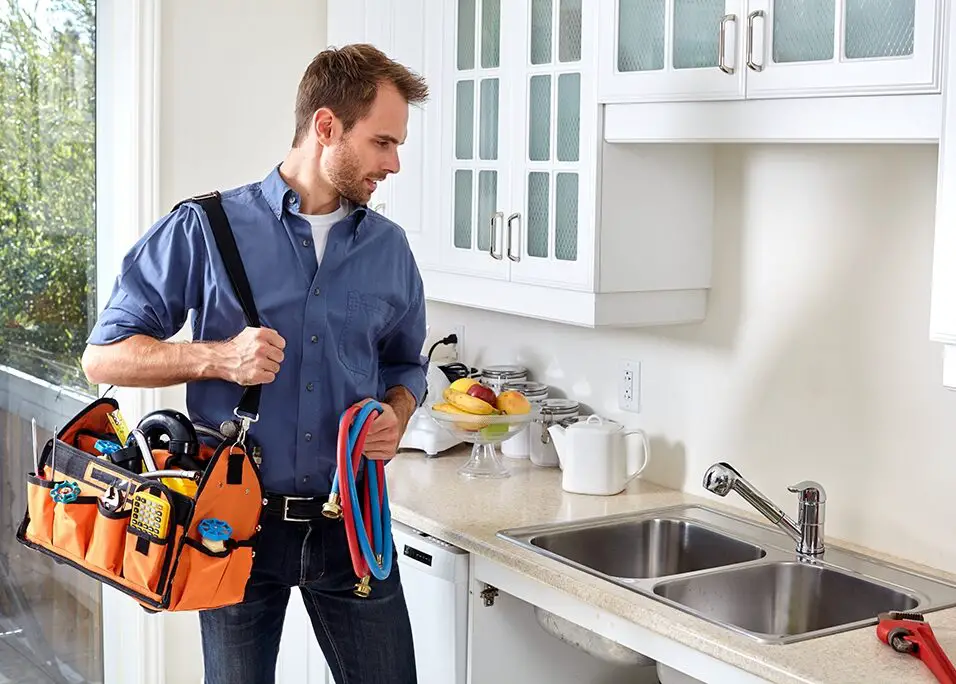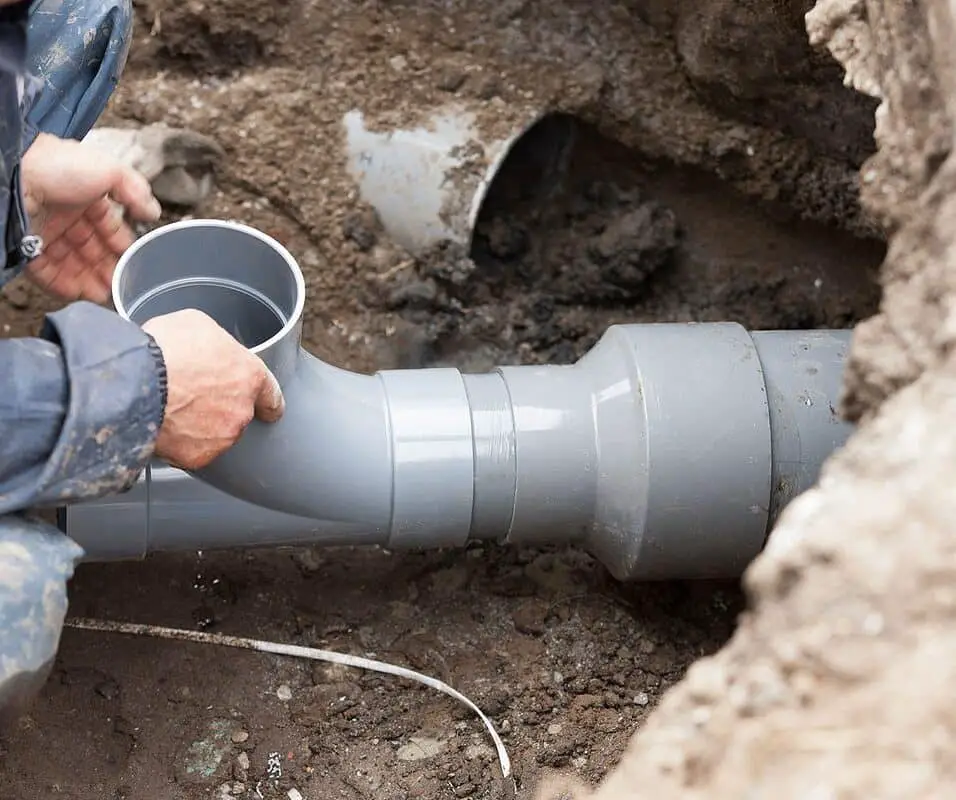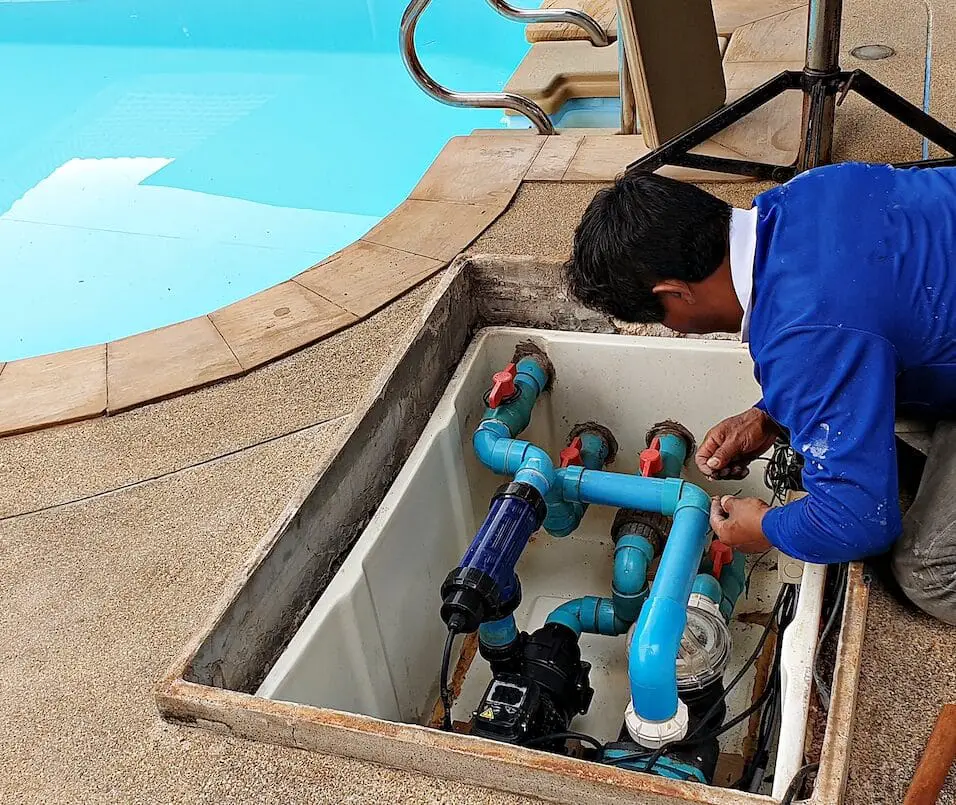How To Get A Plumbing License
Introduction
Plumbing is a vital trade that ensures the efficient functioning of our homes and businesses. From installing and repairing water supply systems to maintaining drains and sewage lines, plumbers play a crucial role in keeping our daily lives running smoothly. To practice as a professional plumber, obtaining a plumbing license is essential.
In this introduction, we will outline the necessary steps and requirements to acquire a plumbing license. The process may vary depending on the country or state you reside in, but the fundamental principles remain consistent.
Firstly, it is important to understand that becoming a licensed plumber requires a combination of education, training, and practical experience. Typically, aspiring plumbers start by completing a high school diploma or its equivalent. Following this, they enroll in a vocational or technical school that offers plumbing programs. These programs equip students with the theoretical knowledge and practical skills necessary to excel in the trade.
Once the educational foundation is established, aspiring plumbers usually seek apprenticeship opportunities. Apprenticeships provide hands-on training under the guidance of experienced plumbers. This period allows individuals to apply their theoretical knowledge in real-world scenarios and gain valuable insights into the trade. The duration of apprenticeships may vary, ranging from a few months to several years, depending on the jurisdiction.

How Do I Get A Plumbing License In Sc?
How to Get a South Carolina Residential Plumber License
- Have at least 1 year of full time experience working under the supervision of a licensed plumber with in the previous 5 years.
- Submit a completed application and processing fee to the RBC.
- Wait for your Examination Eligibility Letter.
The South Carolina Department of Labor, Licensing, and Regulation (LLR) oversees the licensing process for plumbers in the state.
South Carolina requires a high school certificate or equivalent to earn a plumbing license. Understanding plumbing theory requires a thorough education.
Next, join an LLR-approved plumbing apprenticeship program. Four years of classroom and on-the-job training are typical. A professional master plumber will supervise you and teach you plumbing duties.
Along with the apprenticeship, you need 8,000 hours of supervised plumbing labor. You need these hours to learn plumbing installation, repair, and maintenance.
After your apprenticeship and job experience, you can take the Journeyman Plumber Exam. This LLR exam tests your understanding of plumbing codes, regulations, safety, and general principles. Passing this exam is a major step in getting a plumbing license.
Can A General Contractor Do Plumbing In Sc?
In South Carolina, most plumbing work requires a licensed plumber. Only licensed plumbers can repipe, replace a water heater, or repair septic systems. Without a plumbing license, you’re limited to unclogging pipes and small repairs.
Most South Carolina general contractors must be licensed to do plumbing work. The South Carolina Department of Labor, Licensing, and Regulation (LLR) governs the plumbing sector and sets requirements for plumbers.
South Carolina requires LLR-issued plumbing licenses for plumbing work. This license guarantees plumbers are qualified to perform plumbing services safely and efficiently.
General contractors are certified to supervise building projects but may not be plumbing experts. It may know certain plumbing basics, but they cannot undertake plumbing work without a license.
General contractors might use qualified plumbers for plumbing work on their construction projects. The qualified plumber must ensure the plumbing work fulfills standards and codes in such circumstances.
Do Plumbers Need A License In PA?
Is a license required to perform plumbing work in Pennsylvania? Yes, Pennsylvania requires a license for apprentices, journeymen, and master plumbers. However, the state issues plumbing licenses at the local level, not the state level.
Plumbers are required to have a license in Pennsylvania in order to legally practice their trade. The Pennsylvania Department of Labor and Industry, specifically the Bureau of Occupational and Professional Affairs, oversees the licensing process for plumbers in the state.
To obtain a plumbing license in Pennsylvania, individuals must first complete a high school education or its equivalent. Following this, they must enroll in an approved plumbing apprenticeship program. These programs typically consist of a combination of classroom instruction and hands-on training under the supervision of experienced plumbers. Apprenticeships provide aspiring plumbers with the practical skills and knowledge necessary to succeed in the trade.
Once the apprenticeship is completed, individuals are eligible to apply for a journeyman plumber license. This license allows plumbers to work independently, though still under the supervision of a master plumber. To qualify for the journeyman license, candidates must pass a comprehensive exam administered by the Pennsylvania Department of Labor and Industry. The exam assesses the candidate’s understanding of plumbing codes, safety regulations, and general plumbing principles.
Do You Need A License To Be A Plumber In CA?
Instead, the California Department of Consumer Affairs Contractor State License Board (CSLB) requires plumbers to obtain a C-36 – Plumbing Contractor License to legally perform plumbing work on any project valuing $500 or more. And plumbing contractors in the state operate under the 2022 California Plumbing Code.
The California Contractors State License Board (CSLB) oversees the licensing process for plumbers in the state. To become a licensed plumber in California, individuals must first meet the educational requirements. This typically includes a high school diploma or its equivalent. Some individuals may choose to pursue a plumbing trade school program or vocational training to further enhance their skills and knowledge in the field.
After completing the necessary education, aspiring plumbers must accumulate practical experience through an apprenticeship program. California requires a minimum of four years of apprenticeship training, during which individuals work under the guidance and supervision of a licensed journeyman or master plumber. This period allows apprentices to gain hands-on experience and develop their skills in various aspects of plumbing.
Once the apprenticeship is completed, individuals can apply for a journeyman plumber license. To qualify for this license, applicants must pass a written examination administered by the CSLB. The exam evaluates their understanding of plumbing codes, regulations, safety practices, and general plumbing principles.
How Do I Get A Plumbing License In Texas?
You have at least 8,000 hours of experience working in the plumbing trade; and. you have completed a 48-hour training course* approved by the TSBPE or you are enrolled and in or have completed a training program approved by the United States Department of Labor Office of Apprenticeship.
To obtain a plumbing license in Texas, individuals must follow a specific process outlined by the Texas State Board of Plumbing Examiners (TSBPE). This process ensures that plumbers have the necessary knowledge and skills to perform their duties safely and effectively.
The first step towards getting a plumbing license in Texas is to complete a plumbing trade program or apprenticeship. These programs provide a combination of classroom instruction and hands-on training, teaching individuals the theoretical knowledge and practical skills required for the trade.
After completing the necessary education or apprenticeship, individuals can apply to become a licensed apprentice plumber. To do so, they must submit an application to the TSBPE and pay the required fees. Once approved, they can legally work under the supervision of a licensed plumber.
To advance to the next level, individuals must accumulate a certain number of hours of practical experience as an apprentice plumber. The exact number of hours required may vary depending on the type of license being pursued. It is crucial to keep detailed records of the work hours completed during the apprenticeship period.
What Do Plumbers Do?
Plumbers install and repair pipes and fixtures that carry water, gas, or other fluids in homes and businesses. They also maintain plumbing fixtures like bathtubs and toilets and appliances such as dishwashers or heating systems.
Plumbers play a vital role in ensuring the proper functioning and maintenance of our water supply systems, drainage systems, and plumbing fixtures. Their expertise and skills are essential in both residential and commercial settings.
One of the primary responsibilities of plumbers is the installation and repair of plumbing systems. This includes installing water supply lines, drains, and pipes, as well as connecting fixtures such as sinks, toilets, showers, and bathtubs. Plumbers use a variety of tools and techniques to ensure proper fittings, connections, and sealing to prevent leaks and ensure efficient water flow.
Plumbers also perform maintenance tasks to keep plumbing systems in good working condition. This includes regular inspections, cleaning of drains and pipes, and fixing any issues that may arise, such as clogs or leaks. By identifying and addressing potential problems early on, plumbers help prevent costly repairs and water damage.
In addition to installation and maintenance, plumbers are often called upon to troubleshoot and diagnose plumbing issues. This requires a thorough understanding of plumbing systems and the ability to identify the source of a problem. Plumbers use their knowledge and experience to determine the best course of action for repairs and implement effective solutions.
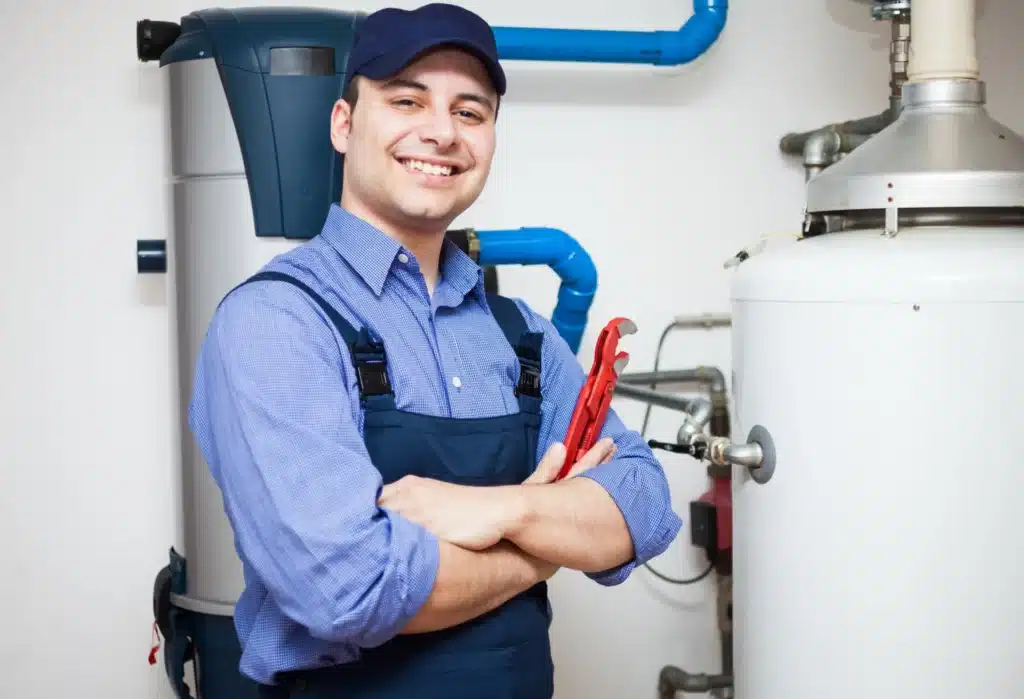
What Are The Requirements To Obtain A Plumbing License?
The requirements to obtain a plumbing license may vary depending on the jurisdiction, but there are some common elements that are typically necessary to qualify for a plumbing license.
Education is an important requirement for obtaining a plumbing license. Most jurisdictions require individuals to have a high school diploma or its equivalent. Some may also require completion of a plumbing trade program or vocational training, where individuals gain theoretical knowledge and practical skills related to the trade.
Another crucial requirement is practical experience through apprenticeship. Many licensing authorities require a certain number of hours of supervised work experience as an apprentice plumber. This apprenticeship period allows individuals to gain hands-on experience and apply their knowledge in real-world scenarios under the guidance of experienced plumbers.
In addition to education and apprenticeship, passing a licensing examination is typically a requirement. The examination evaluates the candidate’s understanding of plumbing codes, regulations, safety practices, and general plumbing principles. It is important for candidates to thoroughly study and prepare for the examination to increase their chances of success.
How Do I Start The Process Of Getting A Plumbing License?
To start the process of getting a plumbing license, there are several steps you can take to set yourself on the right path.
Research Licensing Requirements:
Begin by researching the licensing requirements in your specific jurisdiction. Each state or country may have different requirements and regulations. Look for the licensing board or regulatory body responsible for overseeing plumbing licenses in your area and review their guidelines and requirements.
Education:
Ensure you have the necessary educational qualifications. Most jurisdictions require a high school diploma or its equivalent. Some may also require completion of a plumbing trade program or vocational training. Consider enrolling in a reputable plumbing school or program to gain the theoretical knowledge and practical skills required in the trade.
Apprenticeship:
Seek apprenticeship opportunities to gain hands-on experience. Many licensing authorities require a certain number of supervised work hours as an apprentice plumber. Apprenticeships provide valuable practical training under the guidance of experienced plumbers, allowing you to develop skills and apply your knowledge in real-world situations.
Licensing Examination:
Familiarize yourself with the licensing examination. Most jurisdictions require aspiring plumbers to pass a licensing examination to demonstrate their understanding of plumbing codes, regulations, safety practices, and general plumbing principles. Find out the specific content and format of the examination and consider obtaining study materials or enrolling in preparatory courses to help you prepare effectively.
Application Process:
Once you have met the educational and experience requirements, complete the necessary paperwork and submit an application for a plumbing license. This usually involves filling out an application form, providing supporting documentation (such as transcripts or proof of apprenticeship hours), and paying the required fees.
Continued Education and Renewal:
Keep in mind that some jurisdictions may require continuing education credits to maintain your plumbing license. Stay updated with the latest industry advancements, codes, and regulations by participating in ongoing training programs or workshops. Additionally, ensure you renew your license on time to avoid any lapses in licensure.
Remember, the process of obtaining a plumbing license may vary depending on your location, so it is important to consult the specific licensing board or regulatory body in your area for accurate and up-to-date information.

Conclusion
A plumbing license is a multi-step process that requires a combination of education, practical experience, and successful completion of licensing examinations. It is crucial to research and understand the specific requirements and regulations set by the licensing authority in your jurisdiction.
Starting with a solid educational foundation, such as a high school diploma or its equivalent, aspiring plumbers can pursue further training through plumbing trade programs or vocational schools. Gaining hands-on experience through apprenticeship programs under the supervision of experienced plumbers is a crucial step in building practical skills and knowledge.
Once the educational and experience requirements are met, aspiring plumbers must pass a licensing examination that evaluates their understanding of plumbing codes, regulations, safety practices, and general plumbing principles. Thorough preparation and study are key to success in these examinations.
Applicants must also complete the necessary paperwork and submit an application for a plumbing license, along with any required supporting documentation and fees. It is important to stay updated with any continuing education requirements or renewal processes to maintain a valid plumbing license.




